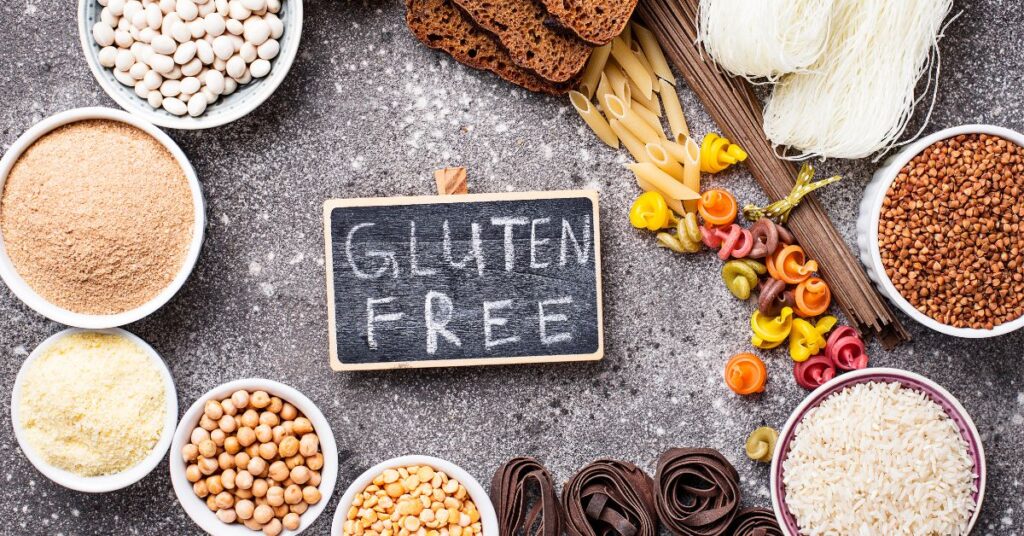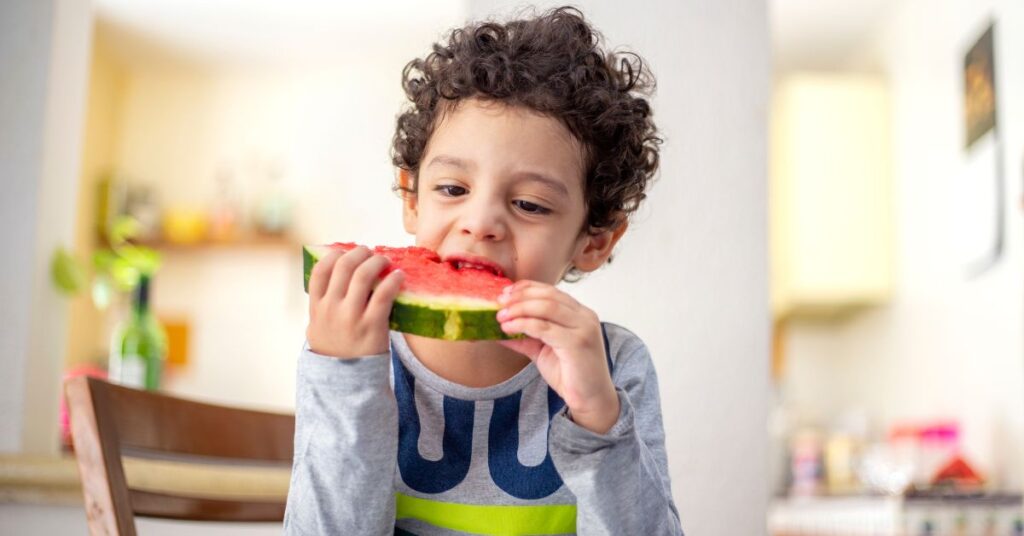I haven’t met a parent of an autistic child yet who doesn’t express some concern about their children’s behavior, eating habits and nutrition. Food and nutrition are important to you and your child. You know that food affects your child in so many ways and want to ensure they are eating the way that is best for them. There has been a lot of information in the news and on social media over the years about gluten-free diets and autism. Would a gluten-free diet really help your autistic child?
What is gluten and its role in your diet?
First, let’s take a look at what gluten is and what it does in our bodies.
According to the Merriam-Webster Dictionary, gluten is “a tenacious elastic protein substance especially of wheat flour that gives cohesiveness to dough.” The Celiac Disease Foundation defines it as “proteins found in wheat (wheatberries, durum, emmer, semolina, spelt, farina, farro, graham, KAMUT® khorasan wheat and einkorn), rye, barley and triticale – a cross between wheat and rye. Gluten helps foods maintain their shape, acting as a glue that holds food together. It can be found in many types of foods, even ones that would not be expected.”
Gluten is part of grains, which overall provide our bodies with soluble fiber, nutrients and proteins.
How can gluten affect the body?
When we eat food, we have enzymes that break it down as part of our digestion processes. For gluten, our enzymes don’t completely break it down, and it makes its way to our small intestines.
Most people can tolerate the undigested gluten and rid it with their waste. Others though cannot tolerate it, and it can trigger an autoimmune response called Celiac Disease.
According to the Mayo Clinic, for those with Celiac Disease, eating gluten “triggers an immune response in your small intestine. Over time, this reaction damages your small intestine’s lining and prevents it from absorbing some nutrients (malabsorption). The intestinal damage often causes diarrhea, fatigue, weight loss, bloating and anemia, and can lead to serious complications. In children, malabsorption can affect growth and development, besides causing the symptoms seen in adults.”
What is a gluten-free diet?

Those who cannot tolerate or are overly sensitive to gluten will usually manage it with a gluten-free diet. That means focusing their overall nutritional needs on foods that do not contain gluten and buying specialized grain products that do not have gluten as an ingredient.
The good news is that most whole foods that pack the most nutritional bang for your child are naturally gluten-free. Those are the best foods for your child to be eating.
Here is a list of some gluten-free foods (please note this list is not comprehensive, but it gives you an idea of what types of food that do not contain gluten):
- Whole grains that are gluten-free: quinoa, brown rice, wild rice, buckwheat, millet, tapioca, oats (that note they don’t have gluten added), arrowroot
- Fresh fruits and vegetables
- Nuts and seeds
- Legumes (e.g., beans, peas, etc.)
- Fresh red meat
- Fresh poultry (avoid any type of meats that have been breaded)
- Fresh seafood
- Unflavored soy products (e.g., tofu, edamame)
- Unflavored milk and yogurt
- Butter
- Cheese
- Cottage cheese
- Cream
- Sour cream
- Olive oil and olives
- Most cooking oils
- Avocados
- 100% fruit juices
- Tea and coffee
- Lemonade
- Sports and soft drinks (but double check labels)
What do scientific studies say about gluten and autistic people?
In the scientific community, studies that have looked at the connection between gluten and autism are mixed. Some have noted a potential link between autism and autoimmune diseases such as Celiac Disease. An extensive review study noted that many studies are too small to make any definitive conclusions. In other words, more research with larger randomized, blinded clinical trials is needed to really understand whether there is a link between the two.
How does picky eating affect your autistic child’s nutrition?

One common problem among autistic children is picky eating. That is something that I’ve dealt with from my son J. Even though he is in his late teens now, he still is very picky, although it has gotten better over time.
Causes of picky eating amongst autistic children can include sensory issues with food, swallowing difficulties, food allergies and intolerances, oral development delays and others. For more information about picky eating related to autism and how to combat it, see this blog post.
Picky eating can lead to some nutritional deficiencies and affect many behaviors and aspects of our autistic children, including:
- Sleep disturbances
- Low body weight
- Compromise of their immune system
- Fatigue
Can working with a registered dietitian help my child?
If you are concerned about your autistic child’s nutrition or worry that your child may have an autoimmune response to certain foods, then talk to your child’s doctor. It is good to have anything medical ruled out regarding food.
If you struggle to help your child eat better, then it may be worth seeking out the help of a registered dietitian. We did this with our son J. Although he hasn’t made a lot of the changes she suggested, he has made a few, and he knows what to do to improve his eating. As with all of us, we often know what to do when it comes to eating – it’s the changing of behavior that is so difficult!
A registered dietitian too can help you determine if a gluten-free diet could help your autistic child. If so, they can advise on specifics and help you make meal plans.
Have you tried a gluten-free diet with your autistic child? What results did you see? Leave a comment below so that we can share and encourage one another on this journey!
Additional resources
Want to dig deeper into this topic? Here are some additional resources to consider.
Autism: Why Food Matters: Connecting the dots for parents (affiliate link)
Behavior Journal for Autism: A Tool for Documenting Behavioral Reactions to Food, Medication, and Stimuli (affiliate link)
Get Your Dragon To Eat Healthy Food: A Story About Nutrition and Healthy Food Choices (affiliate link)
The Children’s Book of Healthy Eating: Improving Lives Through Better Nutrition (affiliate link)
Healthy Eating for Kids: A Parent’s Guide to Health and Nutrition, Grocery Shopping Tips, Learn to Read Nutrition Labels, Establish Healthy Eating Habits (affiliate link)








